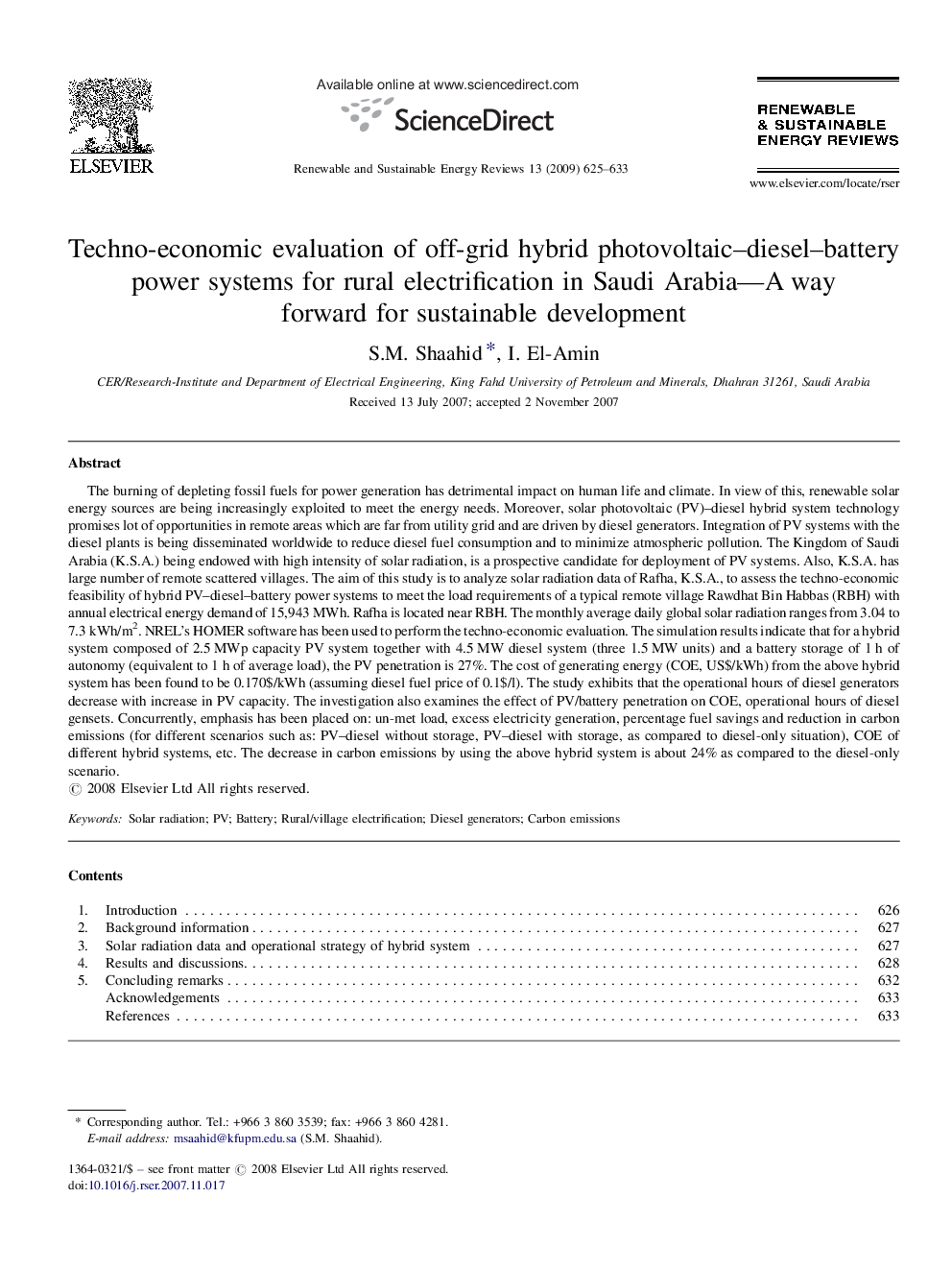| کد مقاله | کد نشریه | سال انتشار | مقاله انگلیسی | نسخه تمام متن |
|---|---|---|---|---|
| 1752195 | 1018435 | 2009 | 9 صفحه PDF | دانلود رایگان |

The burning of depleting fossil fuels for power generation has detrimental impact on human life and climate. In view of this, renewable solar energy sources are being increasingly exploited to meet the energy needs. Moreover, solar photovoltaic (PV)–diesel hybrid system technology promises lot of opportunities in remote areas which are far from utility grid and are driven by diesel generators. Integration of PV systems with the diesel plants is being disseminated worldwide to reduce diesel fuel consumption and to minimize atmospheric pollution. The Kingdom of Saudi Arabia (K.S.A.) being endowed with high intensity of solar radiation, is a prospective candidate for deployment of PV systems. Also, K.S.A. has large number of remote scattered villages. The aim of this study is to analyze solar radiation data of Rafha, K.S.A., to assess the techno-economic feasibility of hybrid PV–diesel–battery power systems to meet the load requirements of a typical remote village Rawdhat Bin Habbas (RBH) with annual electrical energy demand of 15,943 MWh. Rafha is located near RBH. The monthly average daily global solar radiation ranges from 3.04 to 7.3 kWh/m2. NREL's HOMER software has been used to perform the techno-economic evaluation. The simulation results indicate that for a hybrid system composed of 2.5 MWp capacity PV system together with 4.5 MW diesel system (three 1.5 MW units) and a battery storage of 1 h of autonomy (equivalent to 1 h of average load), the PV penetration is 27%. The cost of generating energy (COE, US$/kWh) from the above hybrid system has been found to be 0.170$/kWh (assuming diesel fuel price of 0.1$/l). The study exhibits that the operational hours of diesel generators decrease with increase in PV capacity. The investigation also examines the effect of PV/battery penetration on COE, operational hours of diesel gensets. Concurrently, emphasis has been placed on: un-met load, excess electricity generation, percentage fuel savings and reduction in carbon emissions (for different scenarios such as: PV–diesel without storage, PV–diesel with storage, as compared to diesel-only situation), COE of different hybrid systems, etc. The decrease in carbon emissions by using the above hybrid system is about 24% as compared to the diesel-only scenario.
Journal: Renewable and Sustainable Energy Reviews - Volume 13, Issue 3, April 2009, Pages 625–633